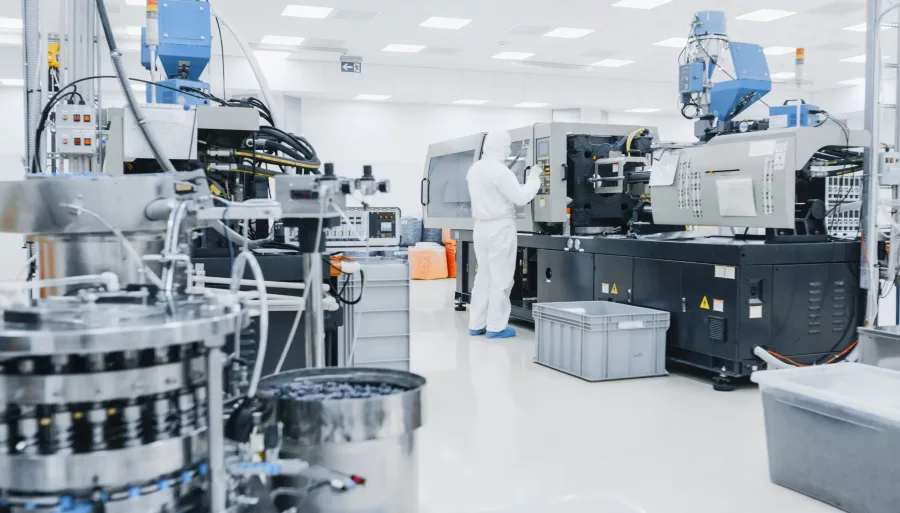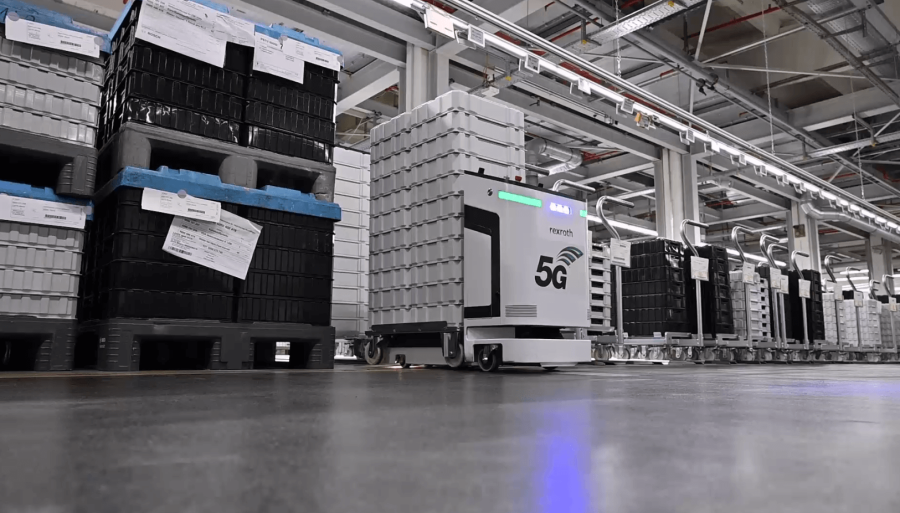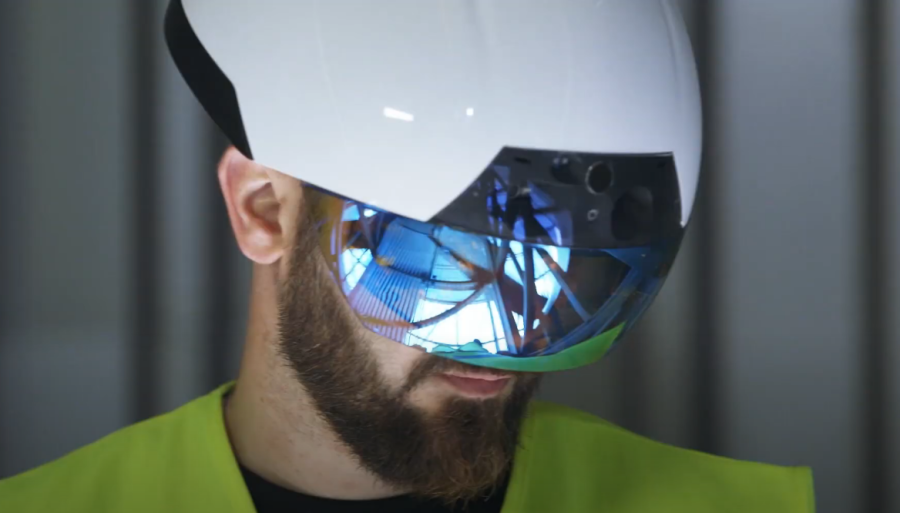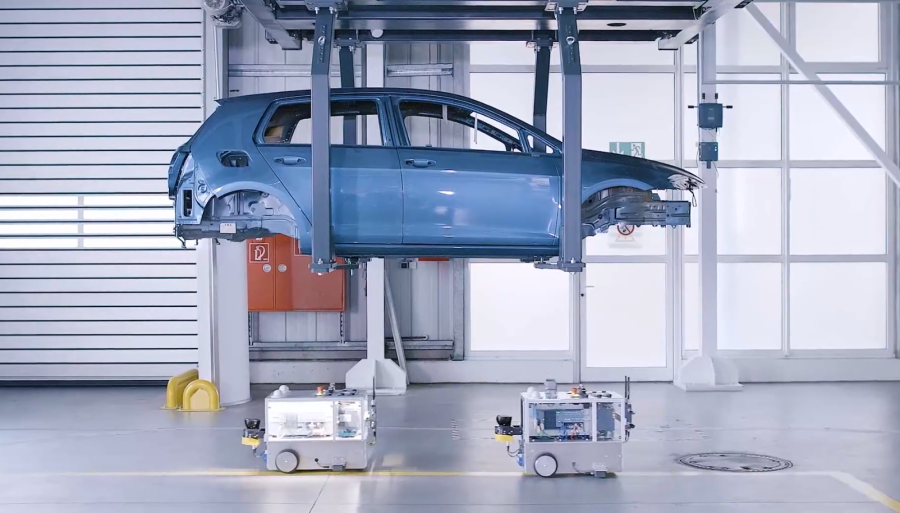Use case
Process Automation
Process automation refers to the control of production and handling of substances such as chemicals, foodstuffs and beverages, etc.
Use case topic
The aim of automation is to streamline production processes, lower energy consumption and improve safety. Sensors measuring process parameters, such as pressures or temperatures, operate in a closed loop by means of central and/or local controllers in conjunction with actuators, e.g. valves, pumps, heaters, etc. A process-automated manufacturing facility may range in size from a few 100 m² to several km², or may be geographically dispersed within a specific region.
Example use cases [1] for process automation include mobile robots, massive wireless sensor networks, closed-loop process control, process monitoring and plant asset management.
Communication services for process automation need to meet stringent requirements. For instance, low latency and determinism are crucial for closed-loop control. Interaction may be required with the public network (e.g. for service continuity, roaming, etc.).
You are currently viewing a placeholder content from YouTube. To access the actual content, click the button below. Please note that doing so will share data with third-party providers.
More Information


